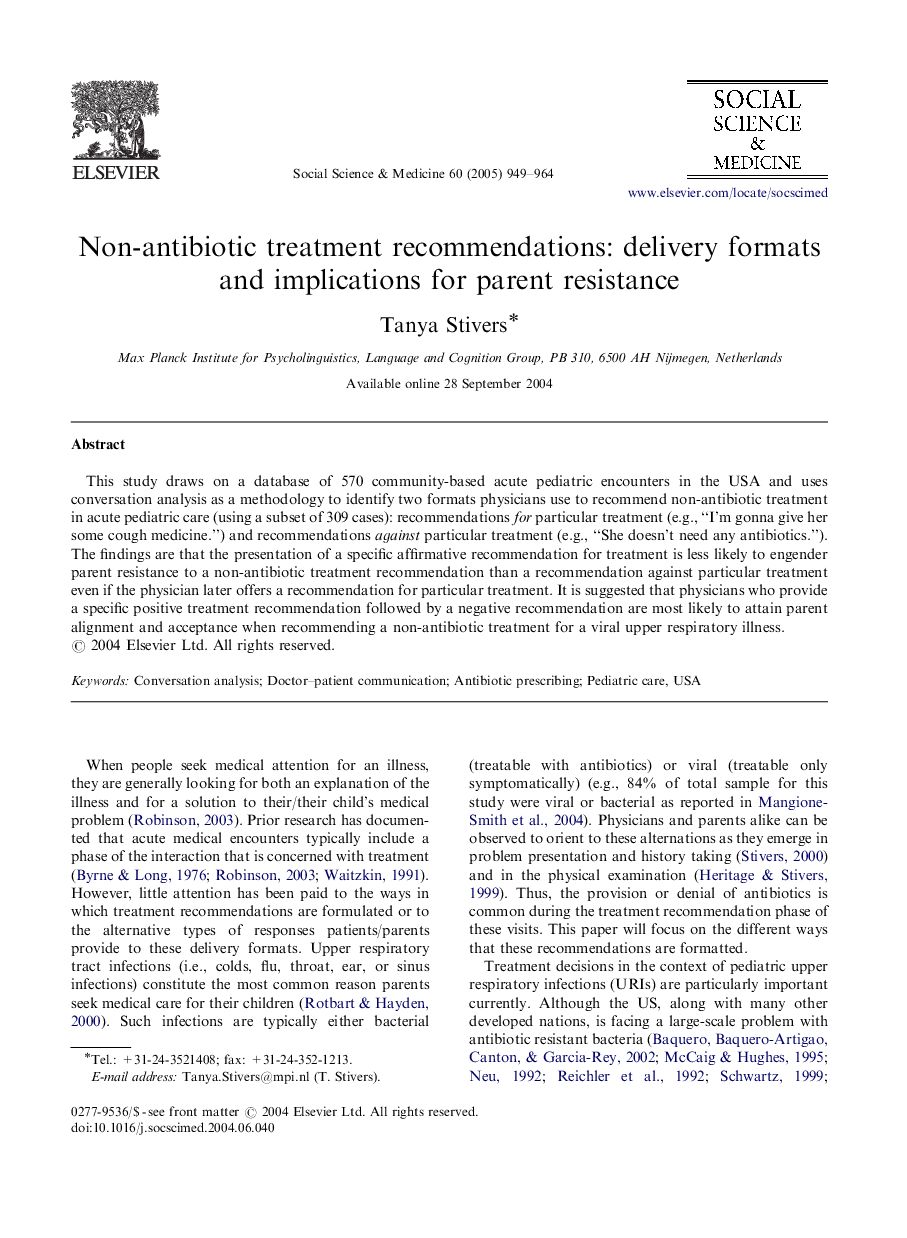| Article ID | Journal | Published Year | Pages | File Type |
|---|---|---|---|---|
| 10473231 | Social Science & Medicine | 2005 | 16 Pages |
Abstract
This study draws on a database of 570 community-based acute pediatric encounters in the USA and uses conversation analysis as a methodology to identify two formats physicians use to recommend non-antibiotic treatment in acute pediatric care (using a subset of 309 cases): recommendations for particular treatment (e.g., “I'm gonna give her some cough medicine.”) and recommendations against particular treatment (e.g., “She doesn't need any antibiotics.”). The findings are that the presentation of a specific affirmative recommendation for treatment is less likely to engender parent resistance to a non-antibiotic treatment recommendation than a recommendation against particular treatment even if the physician later offers a recommendation for particular treatment. It is suggested that physicians who provide a specific positive treatment recommendation followed by a negative recommendation are most likely to attain parent alignment and acceptance when recommending a non-antibiotic treatment for a viral upper respiratory illness.
Related Topics
Health Sciences
Medicine and Dentistry
Public Health and Health Policy
Authors
Tanya Stivers,
